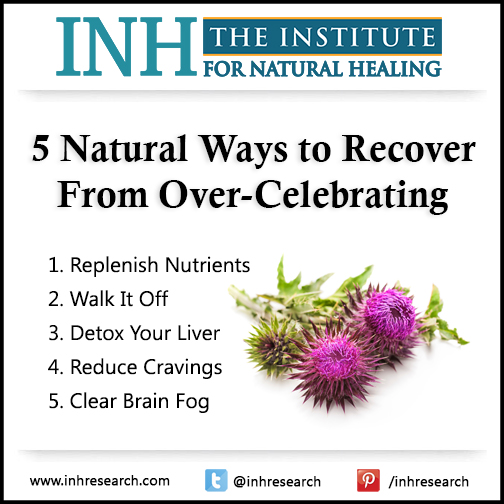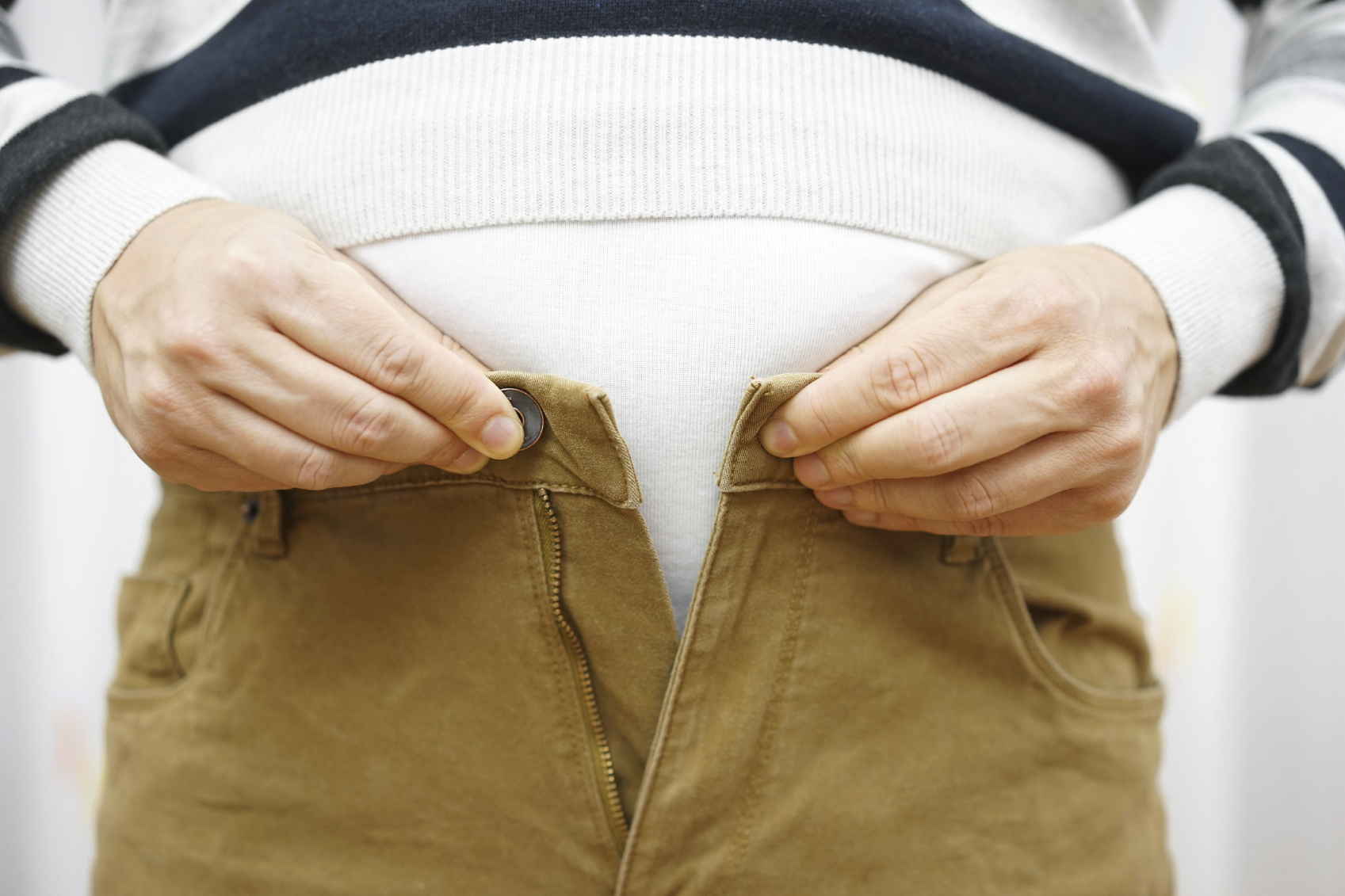The holidays came and went. And so did the appetizers…the rich entrees…the decadent desserts…and let’s not forget the drinks. Many, many drinks.
Wallowing in guilt won’t help. According to Torey Jones Armul—national spokesperson for the Academy of Nutrition and Dietetics—it can lead to a cycle of binge and emotional eating.1
Here are five science-backed tips that will help you recover from overindulgence:
1. Replenish Lost Nutrients
Vitamin B12 helps your body produce red blood cells. It also plays a role in regulating your nervous system. Throwing back too many drinks depletes this vitamin. That’s because it helps metabolize alcohol.2 Running low can lead to anemia and mental confusion.3
Replenish your B12 by eating a serving of wild-caught salmon. Just four ounces contains 236% of your daily value.4 If fish doesn’t sound appetizing the day after hitting the bottle, take a whole-food B-complex supplement.
2. Walk It Off
Researchers in Japan tested the triglyceride levels of people after they ate a high-fat meal. Triglycerides are the kind of fat your body stores. They found that a brisk, two-kilometer walk helps lower post-meal blood triglycerides.5 That’s about 1.25 miles.
The next time you find yourself wanting to nap after a big meal, go for a walk instead. It will help you digest your food instead of adding it to your waistline.
3. Detox Your Liver
Your liver helps break down fats, carbs, and proteins. It also filters your blood, removes toxins from your system, and helps regulate your metabolism. But when you eat too much, it becomes overloaded. This makes it difficult for your liver to do its job.
Milk thistle extract can protect your liver from damage and inflammation. And dandelion root stimulates detoxification.6 Both can be found online and in health food stores. You can take either as a supplement or tea.
4. Reduce Cravings
If you’re feeling ravenous after the holidays, it’s not because your stomach has stretched. Eating carb-heavy foods raises blood sugar. A flood of insulin follows. Dr. Holly Lofton explains, “This insulin surge then makes your blood sugar drop rather quickly . . .”7 She’s the director of weight management at NYU Langone Medical Center. Being in a state of low blood sugar makes you crave more food.
Instead of binge-eating, try intermittent fasting. It will give your digestive system—and your liver—a much-needed break. It can also improve your glucose uptake. Simply eat dinner at your normal time. Then wait at least 12 hours before eating breakfast.
5. Clear Brain Fog
Foods high in fats and simple sugars can impair memory and mental flexibility. That’s the ability to adapt to changing situations. Researchers at Oregon State University believe this is because of the way they disrupt the balance of good and bad gut bacteria.8
Repair the destruction to your gut microbiome to clear brain fog. A good probiotic supplement should do the trick. Choose one online or at your local vitamin store that delivers at least 10 to 15 billion CFUs a day. Lactobacillus strains as well as S. boulardii are some of the best probiotics to restore digestive health.
What helps you return to normalcy after too much food and alcohol? Tell us in the comments section below.
In Good Health,

Angela Salerno
Publisher, INH Health Watch
Like this Article? Forward this article here or Share on Facebook.

References:
1http://time.com/3605405/recover-giant-holiday-meal/
2http://healthyeating.sfgate.com/can-alcohol-deplete-body-nutrients-9335.html
3http://www.healthline.com/health/symptoms-of-vitamin-b-deficiency#VitaminB122
4http://www.whfoods.com/genpage.php?tname=foodspice&dbid=104
5http://www.ncbi.nlm.nih.gov/pubmed/22914246
6http://www.ncbi.nlm.nih.gov/pubmed/11697539?dopt=Abstract
7http://www.cbsnews.com/news/does-holiday-overindulgence-cause-your-stomach-to-permanently-stretch/
8http://oregonstate.edu/ua/ncs/archives/2015/jun/fat-sugar-cause-bacterial-changes-may-relate-loss-cognitive-function

